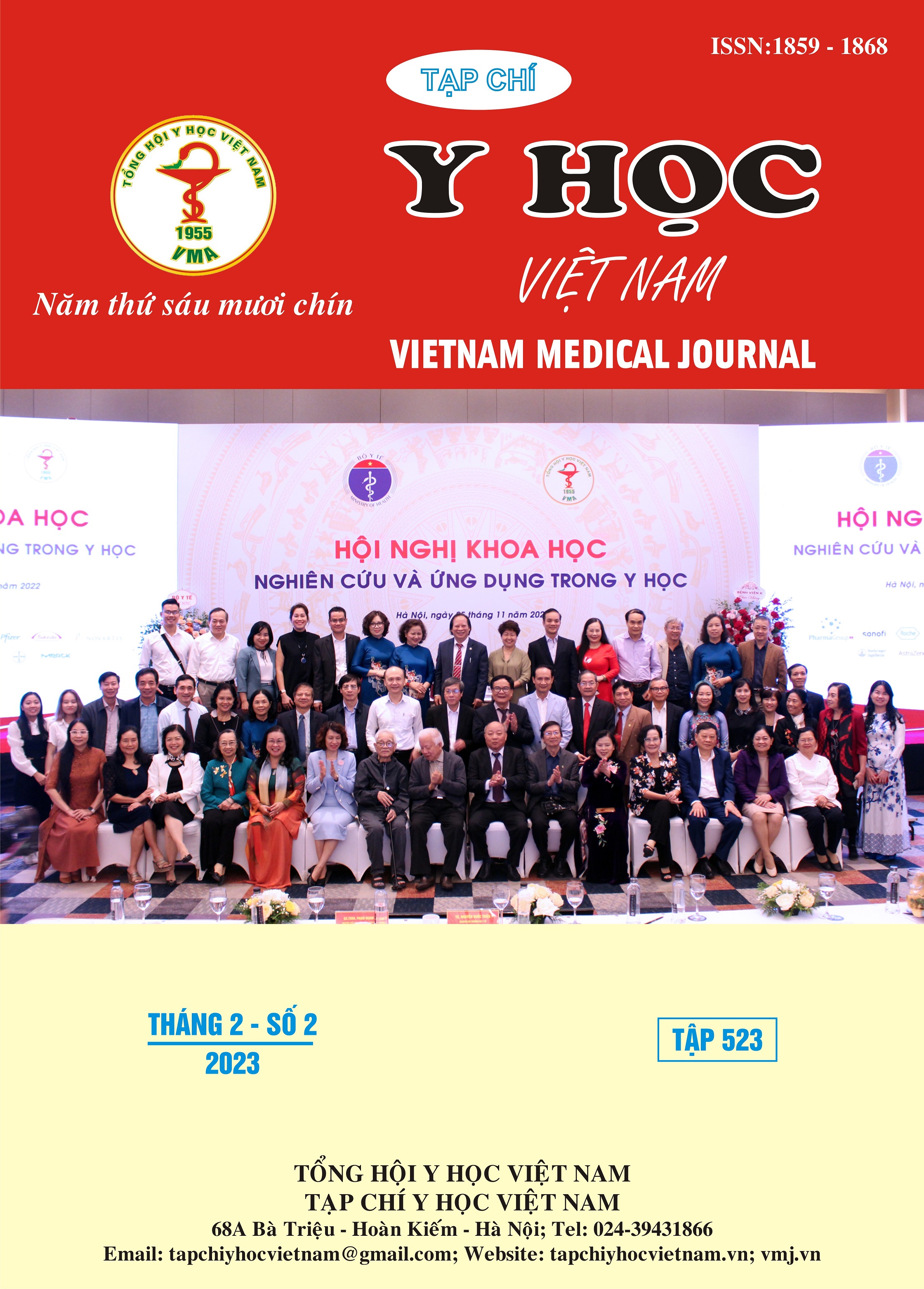ANESTHESIA EFFICIENCY WHEN ADDING DEXAMETHASONE TO LEVOBUPIVACAIN IN SUPRACLAVICULAR BRACHIAL PLEXUS BLOCK FOR UPER LIMB SURGERY
Main Article Content
Abstract
Objectives: To compare the effects of sensory block, motor block, anesthesia and postoperative analgesia for upper limb surgery when adding 8mg dexamethasone to 0.5% levobupvacaine and 5mcg/ml adrenaline with do not add dexamethasone in supraclavicular brachial plexus anesthesia. Methods: A descriptive, prospective, randomized, controlled study on 60 patients undergoing planned upper limb surgery at Thai Nguyen Central Hospital from January 2022 to September 2022. Results: The rate of good anesthesia quality in LA and LAD groups was 90% and 93.33%, respectively. There are no cases of poor insensitivity quality. The difference between the 2 groups was not statistically significant. The time of onset sensory and motor block in the LAD group (5.33 ± 1.42 minutes and 8.40 ± 2.04 minutes, respectively) significantly lower than LA group (7.20 ± 1.56 minutes and 10.23 ± 2.23 minutes, respectively). The duration of sensory and motor block, time for the first rescue analgesia in the LAD group (1132.20 ± 224.84 minutes, 995.37 ± 227.03 minutes and 1107.37 ± 219.09 minutes, respectively) significantly longer than the LA group (871.50 ± 154.37 minutes, 733.93 ± 161.83 minutes and 842.37 ± 159.02 minutes, respectively). Conclusions: The addition of dexamethasone to levobupivacaine in supraclavicular plexus anesthesia has been shown to reduce the onset time, prolong the duration of sensory and motor block, and prolong postoperative analgesia. It also gives good anesthesia results in upper extremity surgery.
Article Details
Keywords
brachial plexus block, levobupivacaine, dexamethasone, postoperative analgesia
References
2. Tiến, Nguyễn Xuân, et al., tác dụng của levobupivacain phối hợp fentanyl trong gây tê đám rối thần kinh cánh tay sau phẫu thuật, Y Học Việt Nam, 2022, p. 63-68
3. Persec, J., et al., Low-dose dexamethasone with levobupivacaine improves analgesia after supraclavicular brachial plexus blockade. Int Orthop, 2014. p. 101-5.
4. Yamazaki, A., et al., Comparison of plasma concentrations of levobupivacaine with and without epinephrine for thoracic paravertebral block: A randomised trial. Anaesth Crit Care Pain Med, 2021. p. 100952.
5. Morita, S., et al., Dexamethasone added to levobupivacaine prolongs the duration of interscalene brachial plexus block and decreases rebound pain after arthroscopic rotator cuff repair. J Shoulder Elbow Surg, 2020. p. 1751-1757.
6. Pani, N., et al., A clinical comparison between 0.5% levobupivacaine and 0.5% levobupivacaine with dexamethasone 8 mg combination in brachial plexus block by the supraclavicular approach. Indian J Anaesth, 2017. p. 302-307.
7. Phương, Nguyễn Thị, et al., Đánh giá hiệu quả giảm đau của gây tê đám rối thần kinh cánh tay đường trên đòn dưới hướng dẫn siêu âm cho bệnh nhân cấp cứu chấn thương chi trên. 2020.
8. Veena, G., et al., Comparison of Perineural and Intravenous Dexamethasone as an Adjuvant to Levobupivacaine in Ultrasound-Guided Infraclavicular Brachial Plexus Block: A prospective Randomized Trial. Anesth Essays Res, 2021. p. 45-50.


